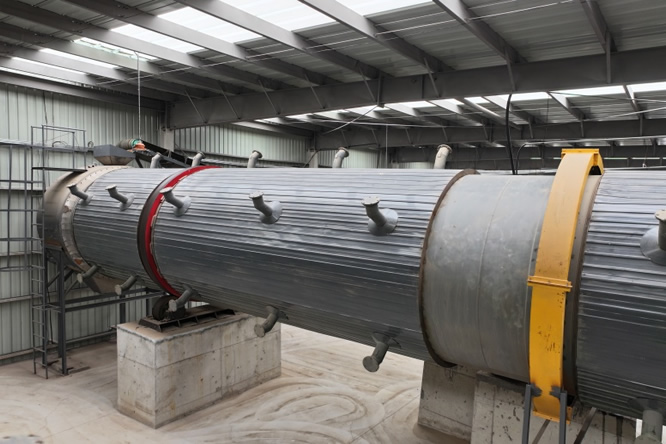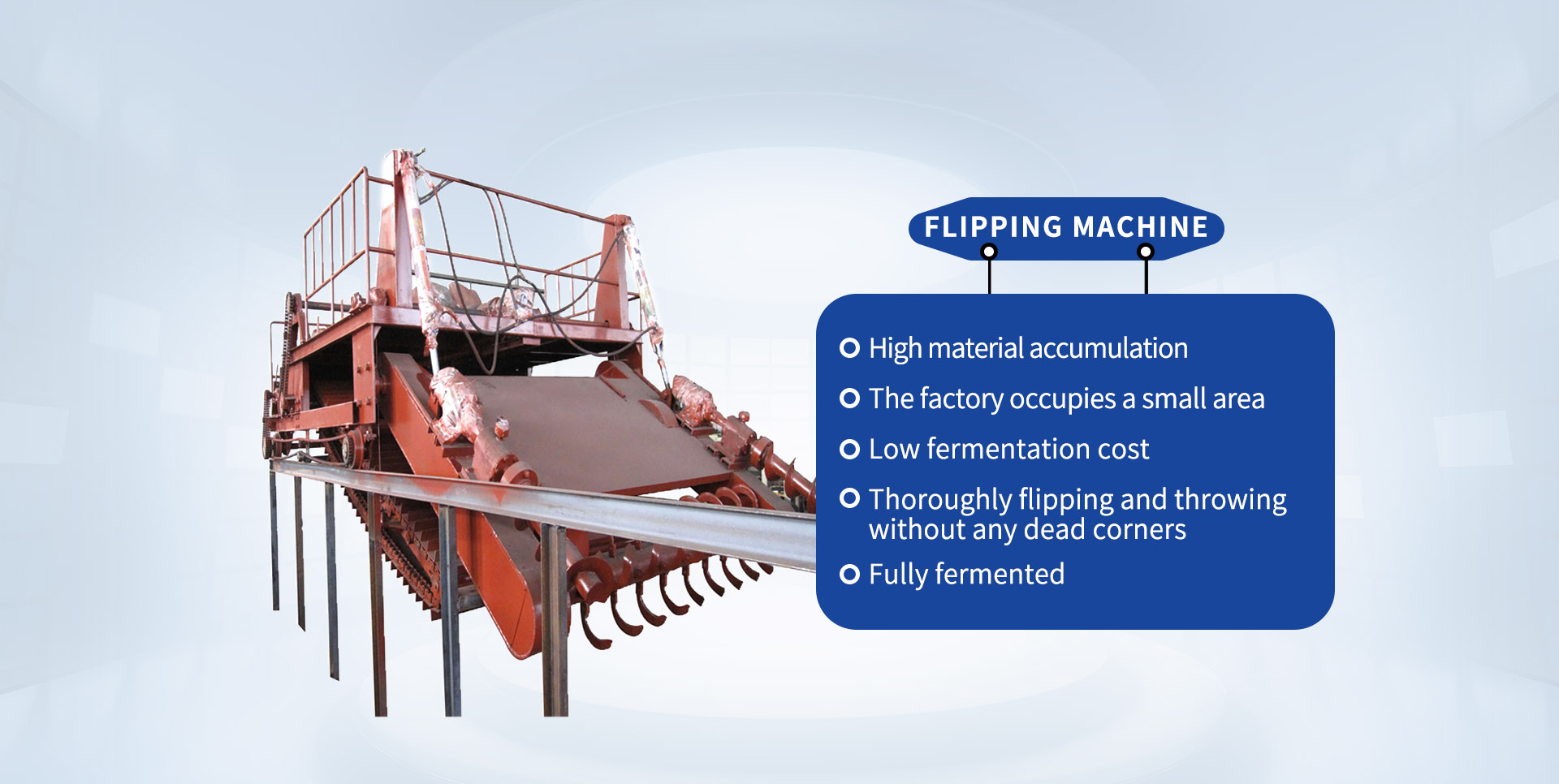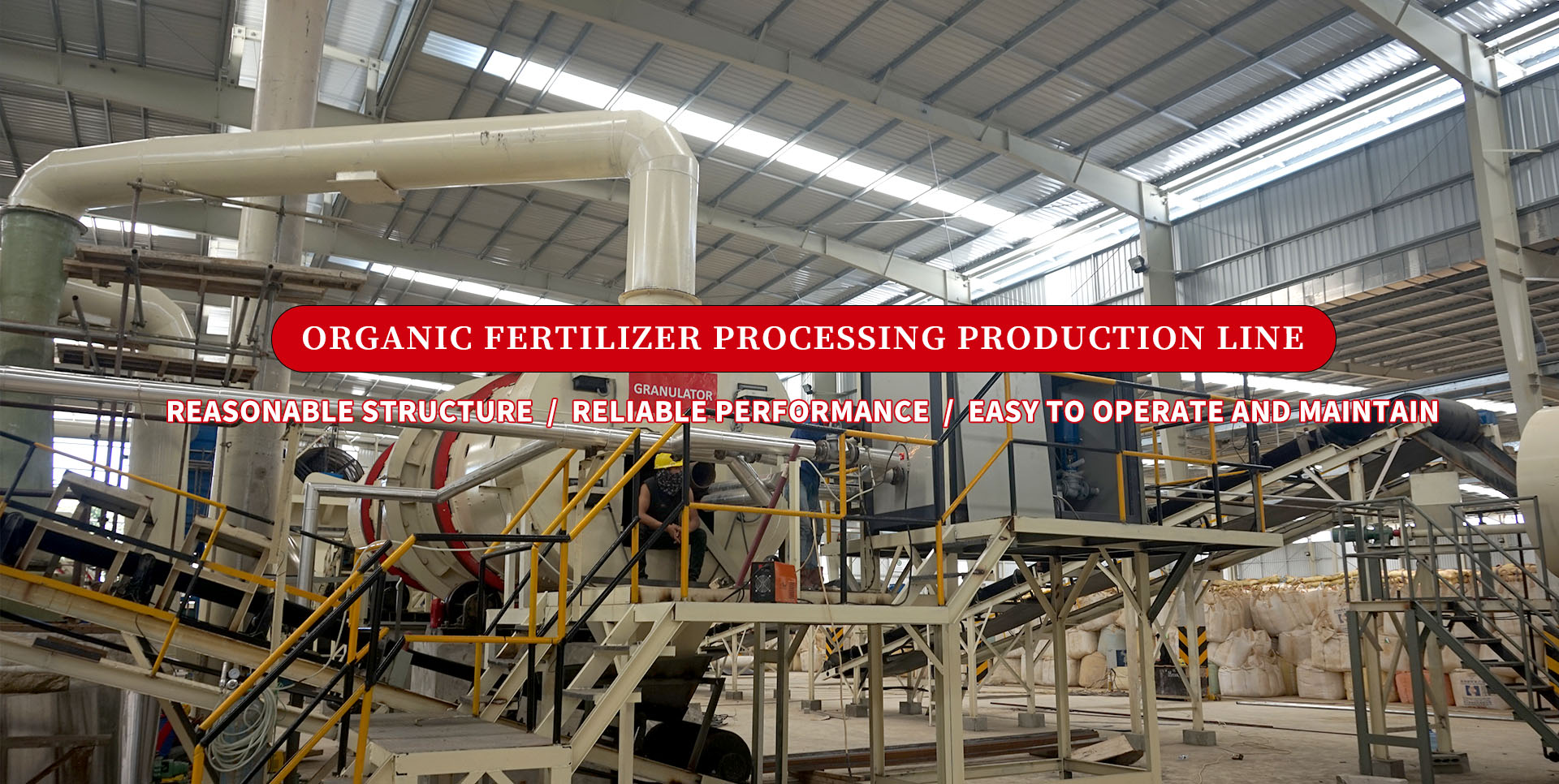


|
The rotary dryer is a continuous drying equipment with a horizontal rotating cylinder as its core structure, mainly used to remove moisture or other wet substances from solid materials through heat exchange. Its working principle is as follows: The material to be dried enters from the top end (feed end) of the cylinder and, as the cylinder rotates slowly around its axis, the material moves axially towards the bottom end (discharge end) under the action of gravity and the rotating discs inside the cylinder. At the same time, hot air, smoke, or other drying media exchange heat with the material through direct contact (parallel flow or counter-flow) or indirect conduction, causing the moisture in the material to be heated and evaporated and being carried away by the medium, ultimately obtaining the dried product. It is mainly composed of the cylinder, hot air system, transmission device, support device, feeding and discharging device, sealing and dust removal device, etc.
Characteristics of the rotary dryer:
Cylinder diameter: Φ1.2 – 3.0 meters
Power: 7.5 – 110 Kw
It has a large processing capacity, suitable for large-scale production; has a wide range of applicable materials; good drying uniformity, stable product quality; flexible operation, convenient regulation; strong adaptability to heat sources; adjustable residence time of materials, controllable drying degree; simple and reliable structure, lower maintenance cost; large equipment volume, relatively high heat loss; special design is required for handling viscous materials.
Applications of the rotary dryer:
1. Agricultural field
In agricultural production, the rotary dryer plays an important role. After grain harvest, it often contains a high moisture content. If not dried in time, it is prone to mold, affecting storage and quality. The rotary dryer can dry grains such as corn, rice, and wheat by allowing the hot air to fully contact with the grains, reducing the moisture to the safe storage standard. In the feed industry, during the mixing process of compound feed, the feed particles contain a certain moisture content, which needs to be dried and cooled to ensure the stability and shelf life of the feed. The rotary dryer can meet this requirement and achieve continuous feed drying operations. In the organic fertilizer production industry, the fertilizer particles produced by the granulator need to be dried for stable and post-processing requirements.
Benefits: Ensure safe storage, achieve continuous operation.
2. Mining field
In mining production, many mineral processing products require drying treatment. In the case of metal ores, iron ore powder, copper ore powder, etc., contain certain moisture during processing, which will affect the transportation, storage, and subsequent smelting and processing. The rotary dryer can effectively reduce their moisture content, facilitating subsequent processing. For non-metallic minerals such as quartz sand, kaolin, etc., drying treatment can ensure product quality and avoid problems such as caking due to excessive moisture, ensuring stable performance in applications such as glass manufacturing and ceramic production.
Benefits: Ensure product quality, stabilize product performance.
3. Building materials industry
The building materials industry has high requirements for the drying of raw materials. The rotary dryer is widely used in this field. In cement production, raw materials such as limestone, clay, etc., contain a lot of moisture in humid areas or rainy seasons. If not pre-dried, it will affect the ratio of raw materials and the grinding efficiency. The rotary dryer can dry these raw materials to ensure the smooth progress of cement production. In gypsum board production, gypsum slurry needs to be dried to reach the specified strength and performance, and the rotary dryer can provide a continuous drying process to meet the needs of large-scale production. In addition, when fly ash is used as a concrete admixture, it needs to control the moisture content, and the rotary dryer can dry it to ensure the quality of concrete.
Benefits: Ensure production smoothness, ensure product quality, large production volume.
4. Chemical industry
In the chemical industry, many chemical raw materials and products require drying in the production process. In the field of fertilizer production, urea and compound fertilizers contain moisture during the production process. After drying, they are easier to store, transport and use. The rotary dryer can efficiently complete the drying operation of fertilizers. For products such as pigments and dyes, drying treatment can ensure their stability and dispersibility, ensuring uniform color and reliable performance during use. The uniform drying characteristic of the rotary dryer makes it suitable for drying such materials.
Benefits: Easy storage and transportation, ensuring product stability, and reliable performance.
5. Environmental protection field
In the field of environmental protection, the rotary dryer has an important application in sludge treatment. Municipal and industrial sludge have extremely high moisture content, not only with large volume but also with the risk of secondary pollution. By drying the sludge through the rotary dryer, the volume of the sludge can be significantly reduced, making it easier for subsequent landfill, incineration or resource utilization, such as turning the dried sludge into fuel or organic fertilizer, achieving the reduction, harmless treatment and resource utilization of sludge.





